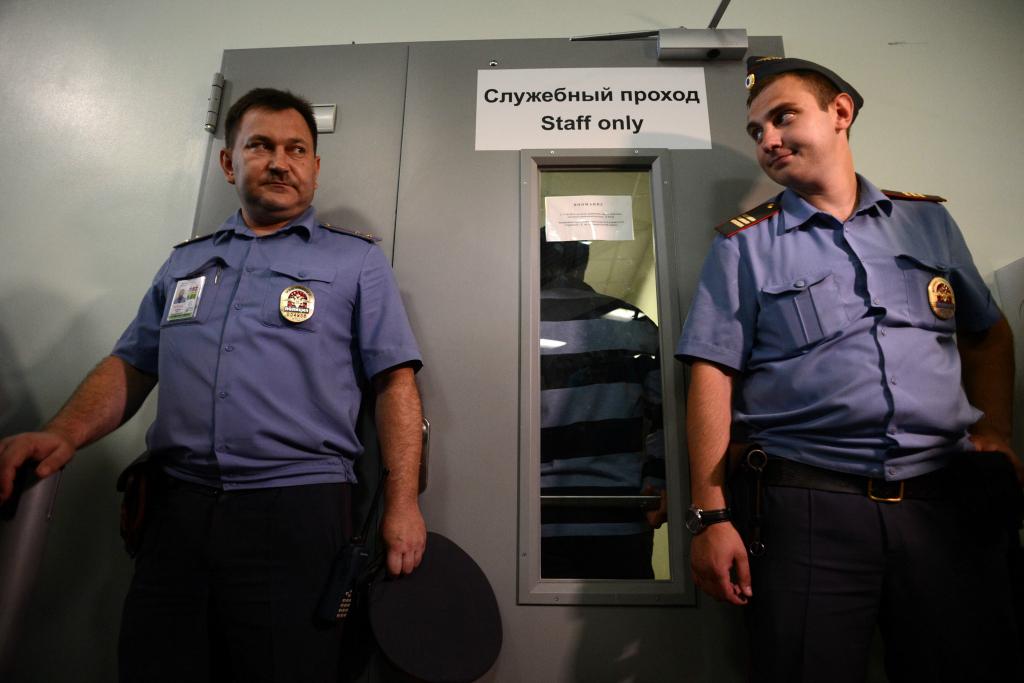8 foreign countries battling NSA backlash
Police officers guard the entrance to Terminal F of Moscow’s Sheremetyevo airport, on July 12, 2013, during a meeting between Russian rights activists and lawyers for US National Security Agency fugitive leaker Edward Snowden.
Ever since Edward Snowden exposed the breadth of the National Security Agency's surveillance program, the ripples of outrage that started in America have spread to countries around the world. Citizens and governments worldwide have acted out against not only America, but also intelligence agencies in their own countries.
![]()
Edward Snowden. The Guardian via Getty Images.
Germany
German Interior Minister Hans-Peter Friedrich, tasked with overseeing an investigation into the NSA’s surveillance programs in Germany, is proposing a series of measures to curtail America's discreet oversight. Amid continuing disaffection within the German public over their government’s response to the leaks, the issue has become a focal point for Chancellor Angela Merkel’s re-election campaign.
![]()
German Intereior Minister Hans-Peter Friedrich. Adam Berry. AFP/Getty Images.
United Kindom
GCHQ, Britain’s equivalent to the NSA, has faced legal suits from privacy-advocacy groups for illegally gathering and sharing information with the United States through the NSA’s PRISM program. The Intelligence and Security Committee, however, found GCHQ not guilty of circumventing UK law. Britain, along with Sweden, voted against allowing EU-US talks in Washington to address a unified European position on intelligence gathering, forcing the PRISM program and data gathering to be addressed separately.
![]()
David Cameron. Oli Scarff/AFP/Getty Images.
France
France attempted to suspend the first-round of trade talks between the European Union and the United States following revelations in early July that the NSA had been spying on European allies. German Chancellor Angela Merkel intervened to push the talks forward. Days later, French Foreign Minister Laurent Fabius said that if spying allegations were confirmed, the actions would be “totally unacceptable.” Obama responded to French and other European leaders complaints, saying “that is how intelligence services operate.”
![]()
French Foreign Affairs Minister Laurent Fabius.. Thomas Samson. AFP/Getty Images.
China
Just months before Snowden exposed the vast American spying network, the United States criticized the Chinese government for its intrusions on cybersecurity. Bill Bishop, author of Sinocism, a popular daily news digest on China, wrote, “It’s Christmas in June in Beijing and Snowden is Santa Claus…If you look at the reactions of the Chinese government over the last few months or a year, specifically to all the allegations of hacking coming out of China, China will say, 'We're a victim, too. We are one of, if not the biggest victim of hacking in the world.' So, now, these revelations come out and they can say, 'See? We were telling the truth.'"
![]()
Philippe Lopez/AFP/Getty Images.
Russia
Snowden has been holed up in the Moscow airport hotel since June 23. Now Snowden is looking solely to Russia for asylum, on advice from his attorney. Asylum will not be granted without a caveat; Snowden must “cease his work aimed at inflicting damage to our [Russia's] American partners” according to Putin. The FBI and its Russian counterpart, the FSB, have been involved in talks since July 26.
![]()
Yuri Kochetkov/AFP/Getty Images.
Ecuador
Pre-Moscow, Ecuador was one of the countries where Snowden was considering seeking asylum. In the immediate aftermath, Ecuador Foreign Minister Ricardo Patiño criticized the United States, saying, “The one who is denounced pursues the denouncer…the man who tries to provide light and transparency to issues that affect everyone is pursued by those who should be giving explanations about the denunciations that have been presented.” Tensions flared higher when a listening bug was discovered in Ecuador’s London embassy, perhaps because it was housing WikiLeaks founder Julian Assange, who is also seeking asylum.
![]()
Ecuadorean Foreign Minister Ricardo Patiño. Rodrigo Buendia. AFP/Getty Images.
Bolivia
Amid the swell of asylum offers from Latin America, Bolivia’s offer brought serious conflict with the United States. The US government forced a plane carrying Bolivian President Evo Morales to land in Vienna and be searched following rumors that Snowden was on the plane. He was not. It is highly unusual for several countries to come together to ban airspace for a non-adversarial country, such as in this case. Morales described the action as being “kidnapped by imperialism.” Several other Latin American countries rallied behind his words, including Argentina and Cuba.
![]()
Helmut Fohringer/AFP/Getty Images
Iceland
Iceland has a particular friend to whistleblowers of late. In 2010, it offered asylum to Bradley Manning and Assange. Icelandic lawmaker Birgitta Jónsdóttir and Smari McCarthy, executive director of the International Modern Media Institute, extended the offer to Snowden. Before getting stuck in Moscow, experts said Iceland would have been his best bet for finding a place to safely hide out.
![]()
Halldor Kolbeins/AFP/Getty Images
Hannah Smith, Angus West and James Miller produced this article.
Every day, reporters and producers at The World are hard at work bringing you human-centered news from across the globe. But we can’t do it without you. We need your support to ensure we can continue this work for another year.
Make a gift today, and you’ll help us unlock a matching gift of $67,000!
